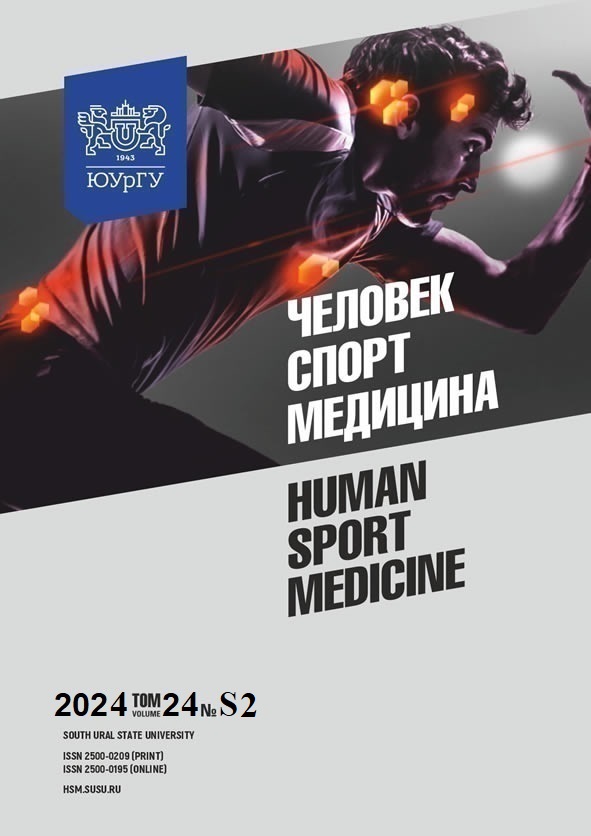THE EFFECT OF TRANSCRANIAL DIRECT CURRENT STIMULATION ON THE PSYCHOPHYSIOLOGICAL STATUS IN MIXED MARTIAL ARTS
Abstract
Aim. To investigate the effect of transcranial direct current stimulation (tDCS) of the dorsolateral prefrontal cortex on the psychophysiological status of mixed martial arts (MMA) athletes during the preparation period preceding competition. Materials and methods. Twenty-eight professional MMA athletes participated in the study (mean age 23 ± 3.2 years, with at least 6 professional bouts). Participants were assigned to either a control group (CG) or 3 experimental groups (EG1, EG2, EG3) receiving different durations of tDCS treatment (EG1: 10 minutes, EG2: 20 minutes, EG3: 30 minutes for 8 days). No additional interventions were proposed in the control group. In the preparation period, all subjects underwent intensive training sessions twice daily to enhance their technical and tactical actions. Results. The results obtained demonstrate that tDCS significantly improved psychophysiological measurements among MMA athletes. However, the severity of the effects varied depending on the duration of stimulation. The most significant effect was observed in EG 3, and a less pronounced effect in EG 2. The effects in CG and EG did not differ statistically and were characterized by decreased performance in the Landolt C, decreased visual perception, and decreased simple and complex sensorimotor responses. Conclusion. These findings demonstrate the effectiveness of tDCS in enhancing the psychophysiological status of professional MMA athletes during the preparation period. Future studies should focus on underlying physiological mechanisms responsible for these effects. The 30-minute protocol had the most significant effect on the psychophysiological status of MMA athletes during the preparation period.
References
References on translit
Copyright (c) 2025 Human. Sport. Medicine

This work is licensed under a Creative Commons Attribution-NonCommercial-NoDerivatives 4.0 International License.















